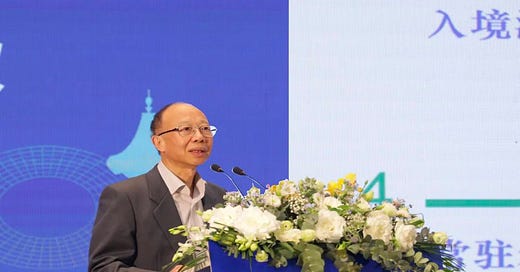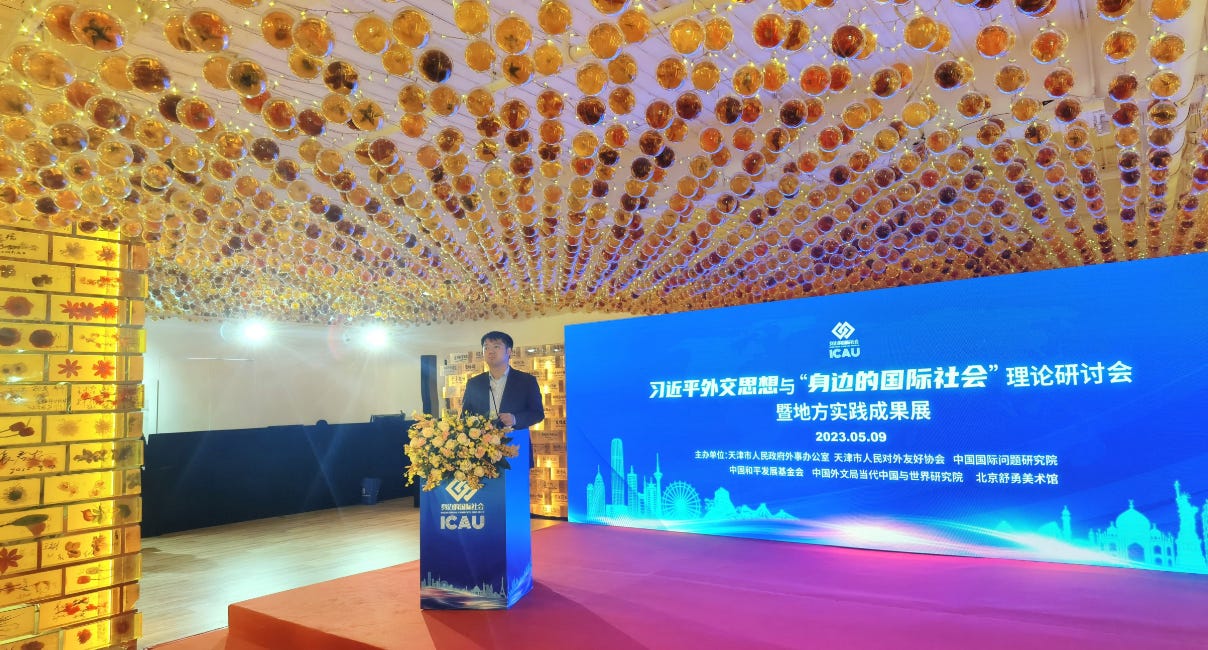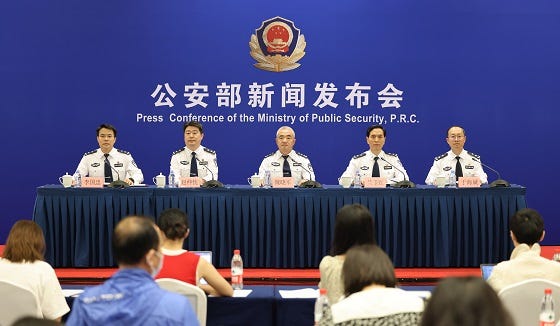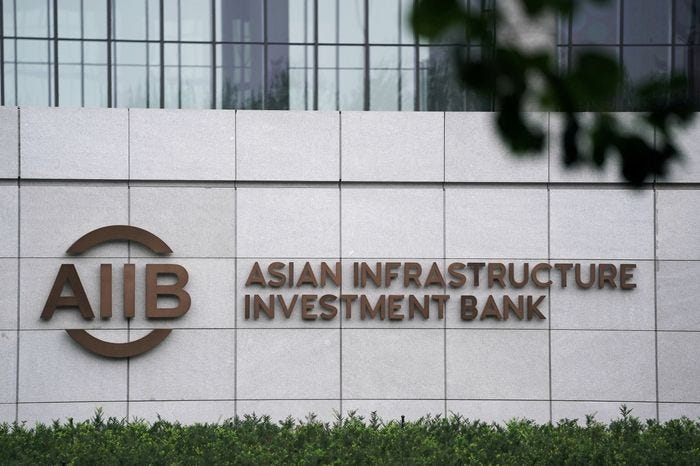Tourism industry official deplores collapse of inbound tourism
Foreign visitors are crucial to restoring friendships & preventing "decoupling" amid mounting unfavorable views from the West
Xiao Qianhui, president of the Smart Tourism Branch of the China Tourism Association (ATA), delivered the speech 振兴入境游迫在眉睫 No Time to Spare to Revitalize Inbound Tourism on May 9 at an ATA meeting in Wuxi, Jiangsu Province. Below is a condensed version of his speech.
China’s inbound tourism is in great difficulties now, which has mainly been attributed to the pandemic. Indeed, Covid-19 serves as the main reason behind the halt to inbound tourism, but there are also other factors here.
It is obvious that China’s inbound tourism is now at the bottom. Many excellent tour guides in this segment are struggling or even quitting. What’s worse, young people are unwilling to enter the segment, resulting in a crisis of human resources. Overall, I think inbound tourism suffers the severest setbacks. In addition to the workforce, the supply chain of inbound tourism is basically disintegrated, if not completely.
Another question that seems to have not been discussed yet is what I call complete degradation. It means that the origin of inbound tourists has undergone significant changes. The proportion of tourists from Western countries, Japan and South Korea has dropped significantly, and they are the fundamentals for China’s inbound tourism. Now they are replaced by tourists from Russia, Mongolia, Myanmar, Vietnam, and other neighboring countries who have relatively lower spending power.
Currently, the statistics include many neighboring countries, and so-called tourists are included. Before the pandemic, how many Vietnamese tourists visited mainland China in a year? 4.5 million people. I once went to Honghe Prefecture in Yunnan specifically to verify this data. Every morning when our border checkpoint opens, there are hundreds and thousands of Vietnamese vendors queuing there. Once the checkpoint opens, they flood in like a tide. These people may be included in the tourism statistics of 4.5 million. Apart from Vietnam, there is also Myanmar. In the Yunnan border area, there are large numbers of daily migrant workers, including international migrant workers from Myanmar who come to work in various industries within our borders. They are also counted as foreign nationals entering the country. They come here for remuneration, and the statistics of the World Tourism Organization require the exclusion of income-earning groups.
What’s worse, during the pandemic, most of the foreign residents in first-tier cities returned to their home countries. I was distressed to witness such an exodus from Shanghai, as these foreigners would have the potential to boost China’s inbound tourism. As long as there are foreigners living in a place, they will continue to provide information to their friends back in their motherland, making a great contribution to our inbound tourism. As far as I know, a large group of foreigners has already left China, which will unfortunately exert a long-term negative impact on China’s inbound tourism.
China used to claim that it ranks No.4 or No.5 globally in inbound tourism. Now? We’d better not talk about it.
As to the reasons behind such a situation, first I want to talk about the geopolitical crisis featured by the anti-China policy adopted by Western countries led by the United States. Such a policy has a far-reaching and long-term impact on China’s inbound tourism.
Second, the impact of Covid-19.
Third, the supply side of inbound tourism cannot adapt to drastic changes in overseas markets.
Fourth, domestic tourism and outbound tourism boast more gross margins and are hence more profitable. Therefore, almost all resources are invested in these two segments. Without subsidies, inbound tourism is struggling to break even.
Fifth, is the Chinese government less incentivized? I am not at ease to elaborate on this, and it’s just a feeling.
Sixth, is there a problem of partial de-professionalization of inbound tourism?
Seventh, the Russo-Ukrainian War. For example, U.S. airlines cannot fly over Russian airspace, so a large number of flights have been stopped.
The reason that China’s inbound tourism must be revitalized lies in that, without healthy inbound tourism, it is impossible to have high-quality tourism. Here I would like to talk about two aspects:
Firstly, inbound tourism provides people-to-people diplomacy in the background of anti-decoupling and anti-encirclement. I believe that “Only when foreigners come to China will they know China, and only after they know China will they be close to China.” If they don’t come to China, then there is nothing. Now, the proportion of both “knowing-China” and “pro-China” groups in major Western countries has dropped to historical lows, even lower than when China-US relations were most tense. Even though the two political parties in the US are extremely opposed, they can still reach an agreement on anti-China. Therefore, resuming inbound tourism is quite important.
Why do I think inbound tourism is a very important form of people-to-people diplomacy? Basically, history taught us that tourism can change attitudes, which is recognized by scholars in some major countries. Data shows that a majority of individuals who hold negative views about China have not visited the country, and those close to us typically have visited China multiple times.
I would like to quote a group of foreign philosophers on how travel can change cognition. Mark Twain said: “Travel is fatal to prejudice, bigotry, and narrow-mindedness.” British writer Aldous Huxley said more precisely and realistically: “To travel is to discover that everyone is wrong about other countries.” Moreover, American poet and playwright Maya Angelou said: “ Perhaps travel cannot prevent bigotry, but by demonstrating that all people cry, laugh, eat, worry and die, it can introduce the idea that if we try and understand each other, we may even become friends.”
Secondly, I believe a way must be found to curb the increasingly unfavorable views in Western countries. The below figure shows that the proportion of negative sentiment towards China in the United States has risen to 82% in 2022.
The following chart presents the mainstream public opinions towards China in major Western developed countries from 2002 to 2020, as surveyed by PEW, an independent polling company.
Overall, almost every country holds an increasingly negative view of China, with the slowest growth in Italy and the fastest growth in the United Kingdom. On average, 73% of these developed countries have a negative view of China, increasing by about 38%. This derives from the anti-China policy adopted by the US and some other countries, as well as many complicated factors.
What is the most powerful weapon against demonization? Will it be Chinese media? No. Chinese media are basically unable to make their voice heard internationally. I think the most effective way is inbound tourism, as tourism diplomacy is the most important component of public diplomacy. Why? Tourism diplomacy can:
First, replace bias with the true image;
Second, expose the lies of foreign media, as seeing is believing.
Third, expand the number of people who know China and are close to China;
Fourth, enhance understanding and soften conflicts;
Fifth, face the new look of China and experience the amity of its people;
Sixth, provide an immersive experience;
Seventh, weaken ideology and enhance affinity.
Another important point is if the “China story” is told by the foreigners themselves, which can generate a completely different effect. Such a process is time-consuming but it will make a big difference - improved foreign individual attitudes towards China will ultimately to improved foreign government views. For example, Elon Musk’s mother just came to China. She said that she had a good time in China. Everyone is kind and friendly. That turned out very positive.
Currently, with the development of China’s tourism industry and the internationalization of the renminbi/yuan, it’s the best time to attract foreigners to travel to China, leave them with positive impressions, and enable them to change their preconceived views.
Now I would like to talk about solutions.
Firstly, inbound tourism needs to be included in the national strategy urgently. What is a national strategy? I believe there are several indicators. Firstly, it should be issued by the national government. If it is issued by a specific government ministry, how can it be considered a national strategy? Secondly, there should be a series of industrial policies. Currently, these policies seem unclear and do not have a noticeable impact on inbound tourism, especially when compared to countries like Japan, South Korea, and some European nations. Furthermore, there should be necessary mechanisms in place; otherwise, it cannot be considered a national strategy. Particularly in the areas of foreign affairs, immigration, external publicity, and civil aviation. If these aspects are not coordinated, how can we develop inbound tourism? Do we have such mechanisms? I’m not saying that we don't have any, but they are not as comprehensive as those in other countries. Lastly, it is crucial to effectively address the concerns related to tourism, as many of these “pain points” involve multiple departments. Personally, I strongly believe that it should be included as part of the national strategy.
Take Japan for example. Japan’s endeavor to build itself into a tourism-oriented country is precisely a national strategy and a kind of tourism diplomacy, yielding favorable results. This set of policies has been coordinated from the cabinet to the ministries, to local governments, and to businesses.
In the past, there were many tourists from Japan to China and relatively few Chinese who traveled to Japan. Now the situation has reversed. Before the pandemic, there were 2 million Japanese who came to China, and the number of Chinese traveling to Japan registered nearly 9 million. Moreover, after their visit to Japan, these Chinese people’s impression of Japan changed a lot. Chinese people who are friendly to Japan now exceed the Japanese who are friendly to China. This is not a simple tourism issue or a simple economic issue, but a political issue.
Several characteristics of Japan’s strategy:
First, instead of domestic or outbound tourism, inbound tourism acts as the focus, which is really worth consideration.
Second, the visa policies serve inbound tourism. In order to develop tourism in Okinawa, Japan has especially issued a visa. With this visa, as long as you have been to Okinawa, you can go to Japan multiple times within three years.
Secondly, drive inbound tourism through reform and opening up.
A prominent issue is visa. It is rather difficult for foreigners to fill out various application forms. For example, the visa forms require providing information on which district the hotel is located in, which is a challenging question for visitors. Many foreigners give up on traveling to China just during the process of filling out the form.
What’s worse, foreigners cannot use Twitter and Facebook in China, leading to significant complaints.
Thirdly, innovate the business model of inbound tourism. The business model needs to be based on the Internet and the major social media in Western countries, which is the main channel for information output and customer acquisition. But the tourism industry in China is underprepared. Besides, travel agencies need to embrace individual customers, and there is no need to form a group agency. Moreover, customization and membership.
I want to mention Li Ziqi, an online celebrity from Sichuan Province. Her short videos have attracted millions of foreign subscribers. Have China’s industry considered collaborating with Li Ziqi for inbound tourism? For example, She can showcase her lifestyle, and travel agencies offer tourism experiences based on that: exploring authentic rural life in China.
Also, TikTok can be leveraged, which has an astronomical number of users. Since TikTok allows users to sell goods and shoot short videos, can inbound tourism be integrated into it? Innovation is essential as the old business models are becoming outdated.
Lastly, the focus of inbound tourism should be on young people. Data proves that the younger generation in the US shows significantly lower levels of negativity towards China. The same is true for Japan. Therefore, the younger generation is the focus, who may also be TikTok users themselves. They don’t have a lot of bad views towards China in the first place.
On behalf of my colleagues who are still in the segment of inbound tourism, I would like to appeal to the relevant departments to solve some problems in the inbound tourism business. Firstly, foreigners cannot buy China’s high-speed rail ticket through the online 12306 platform, which is rather inconvenient. Secondly, tickets cannot be issued in advance. In the past, travel agencies could issue tickets for foreign tourist groups one month in advance, but now this is impossible. Additionally, attractions like the Forbidden City do not offer group tickets, requiring travel agencies to individually buy online tickets. Such a cumbersome process discourages many practitioners. Inbound tourism can no longer go on like this.
Let me conclude with one sentence: Amity between the people holds the key to good relations between countries; mutual understandings hold the key to amity between the people; more exchanges hold the key to mutual understanding.
Sharp Decline in the Number of Foreigners in China Demands Serious Attention
Wang Wen, Executive Dean of the Chongyang Institute for Financial Studies at Renmin University of China delivered a speech at “习近平外交思想与‘身边的国际社会’理论研讨会 a seminar on Xi Jinping Thought on Diplomacy and its relevance to the "international community around us" on May 9.
Where China stands on Fentanyl
Fentanyl has emerged as a prominent issue between China and U.S. relations, including the recent trip by Secretary of State Anthony Blinken to Beijing. Blinken said in the press conference concluding the visit I raised as a priority the issue of synthetic opioids and fentanyl, a crisis in the United States. Fentanyl is the number-one killer of Americans…
AIIB's independence backed by evidence
Much ink has been spilled over the Asia Infrastructure Investment Bank after Bob Pickard, its now former communications director, resigned from his post, took to Twitter to launch eye-catching but vague accusations, and fled China. The Wall Street Journal, which I have maintained over the years has the best China news reporting among its peers, just publ…



















As a tour operator for business study tours I can only fully agree with Xiao Qianhui's speech. (With the exception of fully blaming worsened China sentiment on the US, I mean ... come on!).
Our business has been non-existant for 3 years and we hear how our Chinese partner agencies are struggling to get foreign tourists in. There is a lot that needs to be done to solve this and Xiao Qianhui mentions many of them.
Besides worries about possible wars over Taiwan among my potential clients, I myself experience that many people are still reluctant because of covid origins and zero-covid policies and potential lockdowns. These might be highly unlikely to the well-informed, but not to the travellers. And there is a general distrust in the information provided by the government (failing to report cremation data ... looks like somebody has something to hide, how can we trust what they say?).
Also mentioned by Xiao Qianhui is the visa process. I have lived in China and been back to China on many different types of visa but every time the application process has been the worst I have experienced when travelling to any country. Listing all my previous employers? Listing the work my parents do? Sharing the addresses where my kids live? You gotta be kidding.
But you also know that if you don't follow the instructions you might end up in situations like in that Seinfeild episode with the Soup Nazi. That's what going to the visa application center feels like. One wrong step and 'No visa for you!'.
Maybe start by making foreigners feel welcome again (put back those multi-language metro signs in Beijing!) and making the process of going to China pleasant. Allow more flights (which are still much more expensive than they used to be). Provide easy ways of mobile payment that actually work without a Chinese bank account, provide free VPNs, etc.
When you get the feeling a host doesn't really want you to come over, you won't visit.
Really thank you for sharing these speeches and translations with us, they are inaccessible otherwise! Really encouraging to hear Chinese businesses speaking up about the impact of so few foreigners in the country. As a historian and from a cultural perspective the dangers are obvious, but I hope the business pressure can lead to lasting changes in the inbound tourism industry and, quite frankly, the way foreigners are treated. At this point, I don't recommend anyone visit China without speaking Chinese or having previous travel experience there. Even something as simple as booking a train ticket has become an exhausting ordeal that requires plenty of translation, Pleco, and a Chinese friend on speed-dial to ask for clarification.